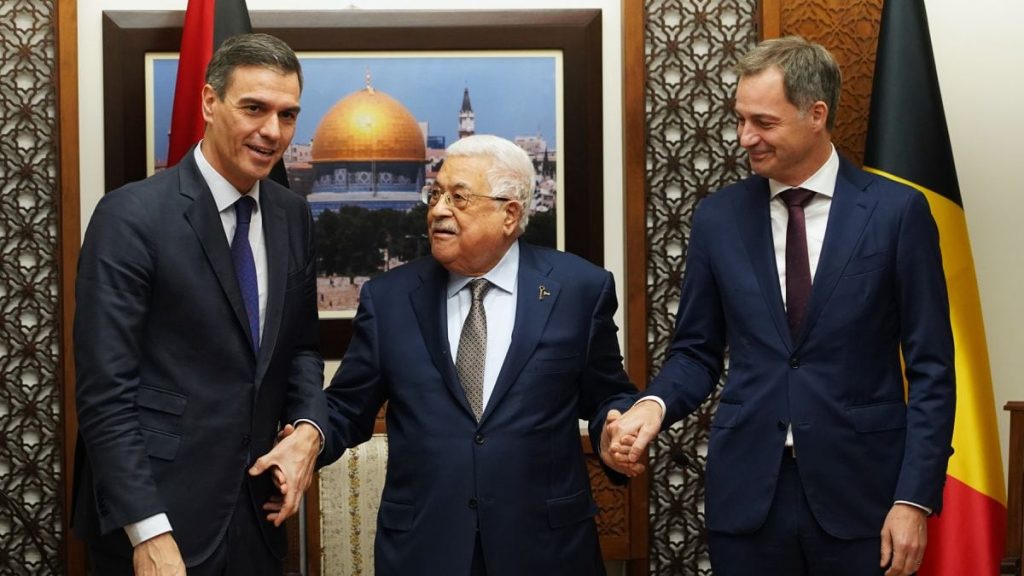The Government plans to recognize the State of Palestine in the first half of this year, before summer, as confirmed by President Pedro Sánchez during his official visit to the Middle East. This commitment to recognize Palestine as a state was initially made last March, but the deadline has been shortened to before the summer. This move is expected to coincide with the European elections in June. The President is hoping for progress on this issue soon, noting the importance of decisions made in Brussels and New York.
In addition to recognizing Palestine, Spain is also working to persuade Arab countries that have not yet recognized Israel, such as Saudi Arabia and Qatar, to do so. President Sánchez’s trip will take him to Jordan, Saudi Arabia, and Qatar with the goal of influencing key actors in the region to support the recognition of both Israel and Palestine as two separate states. This approach aims to achieve a lasting solution to the Gaza conflict by gaining international recognition for both states from Western and Arab countries.
Spain has been coordinating with other European countries to avoid acting alone in recognizing Palestine. While Portugal and Belgium withdrew their support for recognition due to ongoing elections, Spain, Slovenia, and Ireland are moving forward with the decision. Spain hopes that more countries will join this initiative in the future to demonstrate solidarity with Palestine. The timing of this recognition is seen as crucial, with a window of opportunity emerging after the ceasefire in Gaza and before the US presidential elections in November.
President Sánchez’s trip to the Middle East will emphasize Spain’s support for the UN agency for refugees (UNRWA), a call for an immediate ceasefire in Gaza, and the release of Israeli hostages held by Hamas. Spain has been vocal in condemning Israel’s actions in Gaza and will urge Arab countries, starting with Saudi Arabia, to recognize Israel. This visit marks the President’s third trip to the region and is seen as a significant moment, following the UN resolution calling for a ceasefire.
The visit is not only symbolic but also has economic implications, as Saudi Arabia and Qatar have invested heavily in Spanish companies on the IBEX 35 stock exchange. While discussions on economic matters may arise during meetings, human rights issues in authoritarian regimes like Saudi Arabia and Qatar are not on the agenda. The focus of the trip is on advancing peace and stability in the region through diplomatic efforts and engagement with key players in the Israeli-Palestinian conflict. Spain’s leadership in advocating for a two-state solution reflects its commitment to promoting peace in the Middle East.


